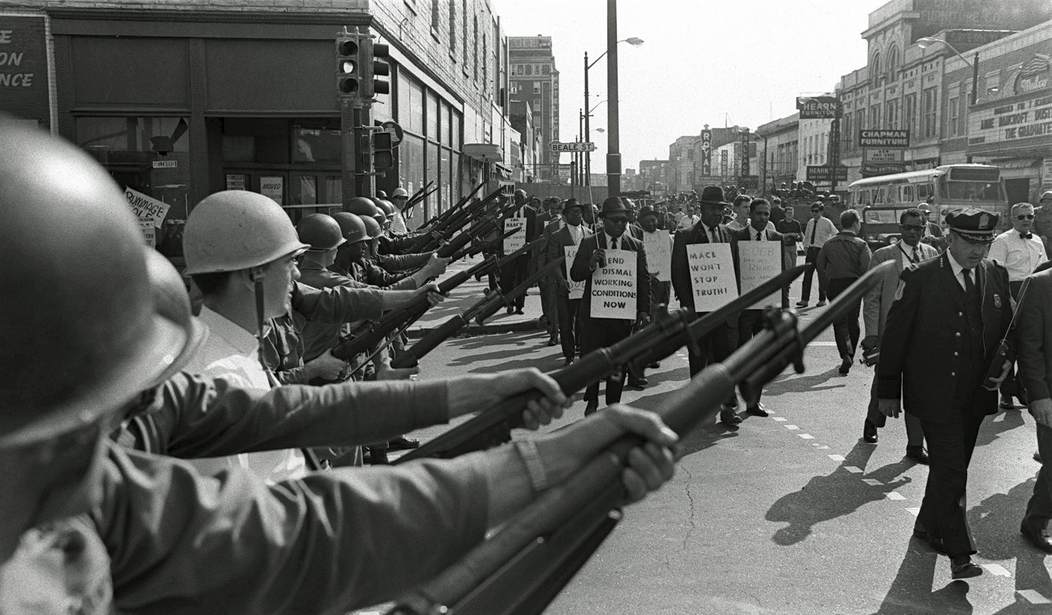Texas Wesleyan University has canceled a play because of the use of the n-word. So far, nothing unusual, right? Universities cancel everything these days, and using the n-word is pretty much a surefire way to get a paper, article, book, or play consigned to the ether.
This play, however, was written by a black man, Carlyle Brown. The play is called Down in Mississippi. Set in the state of its title, the play is about a young black man from up north who comes to Mississippi during the civil rights movement.
The College Fix reports that, because the n-word is used multiple times in the opening scene, the University canceled the production. The site quotes the Black Student Union’s Instagram post: “Many students who identify as BIPOC on our campus have expressed extreme concerns and are deeply disturbed that this scene will be shown on our campus.”
The school and the theater had a discussion and decided to cancel the play because the word had a “triggering effect.” So that was the end of Down in Mississippi. At least at Texas Wesleyan. I don’t know the entire story of the play or how it ends, but I followed a link to the scene in question. You can access it here.
The play begins with the protagonist Jimmy, talking about his experience as a young black person in America in the ’50s and ’60s — experiences, coupled with the murder of Emmett Till, that lead him to join the Student Nonviolent Coordinating Committee and travel to Mississippi in 1964 to help register black people to vote. The narration switches to a scene with another character named John who is white, verbally abusing Jimmy and using the n-word copiously. So cue the outrage, right?
Wrong.
If you keep reading, you learn that John is a veteran volunteer with SNCC and that he and Jimmy are role-playing. John is teaching Jimmy, who is from New York City, what kind of abuse he can expect while in Mississippi. John hints at the abuse that even he has experienced and talks about having been thrown in jail for his activism. And that my friends, is history.
My own involvement in the Civil Rights Movement was severely limited. My parents pushed me in a stroller at a march and I caught a cold, so I didn’t exactly make any strides for the cause. But I grew up knowing people, black and white, who were active in the movement. They told me about the training they received, which included how to remain calm in the face of intense verbal abuse, what to do if a fire hose was turned on them, how to react when attack dogs were unleashed, and how to protect their heads and bodies during a beating.
I knew of one white man who was in the midst of a civil rights march and was confronted by a group of white men. They asked him “Are you marching with those n*****s?” The man said, “Yes, I am.” One of the group replied, “Well, then you’re a n****r, too!” They beat him with a pipe. I have listened to stories from black people who suffered similar and worse consequences for championing civil rights.
Brown says that he used the word to maintain historical accuracy and to make his work provocative. As I said, I have not read the entire play, and I have no idea of the complete story arc or how the play ends. But in the one scene that I was able to read, it was interesting to note that the white character is in fact, not a dentally-challenged, half-drunk redneck who salutes the Confederate flag, drinks to excess, and runs around in a sheet at night. The character is, at least from what little I was able to read, a man of conscience who is trying to do what is right. Whether Brown intended it or not, that portrayal flies in the face of the current popular mindset.
Yes, I know there is a debate about black people using the n-word. Carlyle Brown is black and is by modern standards exempt from the prohibition. Moreover, as an author and artist, Brown should be able to pursue his craft and tell a story. And he is right about history. That word, as odious as it is, plays a role in American history and in the story of the Civil Rights Movement. And life and history are not as cut-and-dried as some would like us to believe.
Unfortunately, that story will not be told at Texas Wesleyan University, because people do not want to be triggered. Interestingly enough, Brown placed a quote from Aeschylus ahead of the script: “He who learns must suffer. And even in our sleep pain that cannot forget falls drop by drop upon the heart, and in our own despair, against our will, comes wisdom to us by the awful grace of God.”
Truer words were never spoken, except of course, on college campuses. We live in an age of increasing intellectual darkness. Our children are being taught that there is only one narrative, that there is only black and white, and that they need not stretch their minds to wrestle with shades of gray.










Join the conversation as a VIP Member